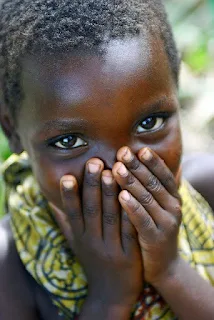Republic of the Congo History of Name Changes
A sequence of six name changes characterizes the history of the Republic of the Congo.
The history of the Republic of the Congo is marked by a series of name changes and transitions that reflect the evolving nature of its governance and international perceptions. Slightly smaller than Montana, about twice the size of Florida, and initially unnamed by colonial powers bearing unknown names in African languages.
Then established as the Sovereign State of the Congo by King Leopold II of Belgium in the late 19th century, the territory underwent a significant shift, adopting the name Congo Free State in 1885 following the International Congo Conference in Brussels.
This name aimed to present the territory as open for international trade and economic activities, though it belied the exploitative reality that would unfold. In French, it became the État indépendant du Congo, further emphasizing the notion of independence even though King Leopold II held personal control.
The Dutch version, Kongo-Vrijstaat, echoed a similar sentiment. However, as international outrage grew over the brutal treatment of the indigenous population, the Belgian government assumed control. It rebranded the territory as the Belgian Congo in 1908, emphasizing the colonial authority of Belgium. This name shift symbolized a transition from personal ownership to colonial administration.
Subsequently, following independence from Belgium in 1960, the country adopted the name République du Congo, signifying its newfound status as a sovereign nation. The sequence of name changes traces the complex evolution of the Congo Free State from a privately owned territory to a Belgian colony and, ultimately, to an independent republic while also reflecting the contrasting narratives of exploitation and self-governance that marked its history.
The Republic of the Congo underwent several name changes and transitions throughout its history.
Unknown Indigenous Names
The Republic of the Congo was initially unnamed by colonial powers, whose titles were unfamiliar in African languages and lost in the written history of time.
Sovereign State of the Congo
This was the initial name used when King Leopold II of Belgium established his personal control over the territory in the late 19th century. It was referred to as a sovereign state to emphasize Leopold's direct ownership.
Congo Free State
This name was officially adopted in 1885 after the International Congo Conference held in Brussels. The term Free State was intended to suggest that the territory was open for international trade and economic activities.
État indépendant du Congo or Independent State of the Congo
This name was used in French, the official language of the colonial administration. It conveyed the notion of a sovereign and independent state, even though the Congo Free State was under the personal control of King Leopold II.
Kongo-Vrijstaat or Congo Free State
In Dutch, the language spoken in Belgium, the name was similar to the French version, emphasizing the territory's status as a free state.
Belgian Congo
In 1908, due to international outcry over the brutal treatment of indigenous populations and human rights abuses under King Leopold II's rule, the Belgian government took over the administration of the Congo Free State. It was renamed the Belgian Congo to reflect its change in governance. This name emphasized the colonial authority of Belgium over the territory.
République du Congo or Republic of the Congo
After gaining independence from Belgium in 1960, the country became known as the Republic of the Congo. This name reflected its newly acquired status as a sovereign nation.
Did you know? The Republic of the Congo is one of the most urbanized countries in Africa, with nearly 70% of Congolese living in urban areas. Brazzaville, the capital and largest city of the Republic of the Congo was named after the French explorer Pierre Savorgnan de Brazza. Pierre de Brazza, as he is commonly known, was a key figure in the European exploration of Central Africa. He played a significant role in establishing French influence and control in the region. Pierre de Brazza founded the city in 1880 during his explorations in the Congo Basin.





